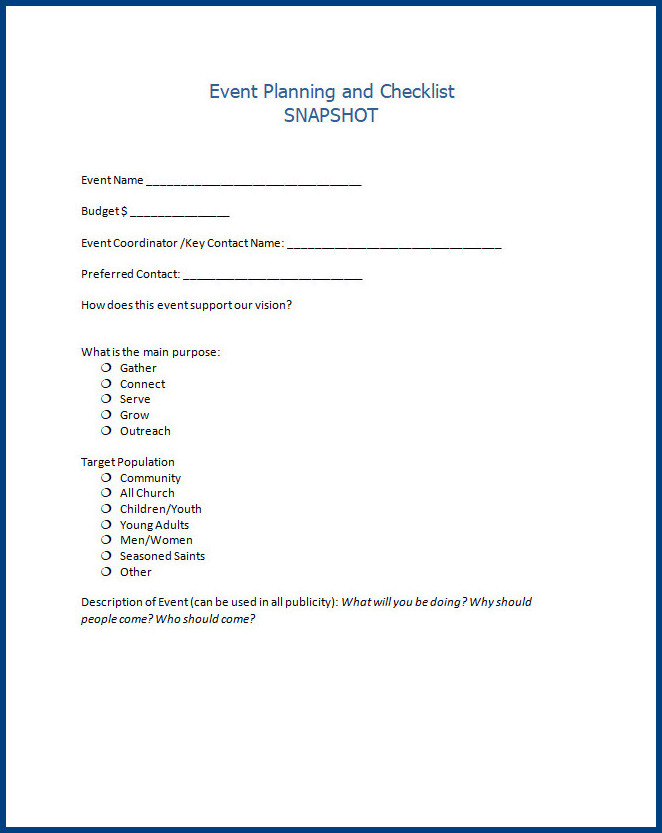What is an event planning to-do list?
An event planning to-do list is a comprehensive checklist that outlines all the tasks and responsibilities that need to be completed in order to successfully organize and execute an event. It serves as a step-by-step guide for event planners to ensure that nothing is overlooked or forgotten during the planning process.
The purpose of an event planning to-do list is to provide structure and organization to the event planning process, helping planners stay on track and meet deadlines. It helps them prioritize tasks, allocate resources effectively, and delegate responsibilities to team members. By having a clear and detailed to-do list, event planners can reduce stress, minimize the risk of mistakes, and ensure the overall success of the event.
An event planning to-do list covers a wide range of tasks, including venue selection, budgeting, vendor coordination, guest list management, marketing and promotion, logistics planning, and much more. It acts as a central hub that contains all the necessary information and action items related to the event. Event planners can use the to-do list to keep track of progress, mark off completed tasks, and monitor the overall timeline of the planning process. Additionally, it allows for effective communication and collaboration among the event planning team, as everyone can refer to the same list and stay updated on the status of each task.
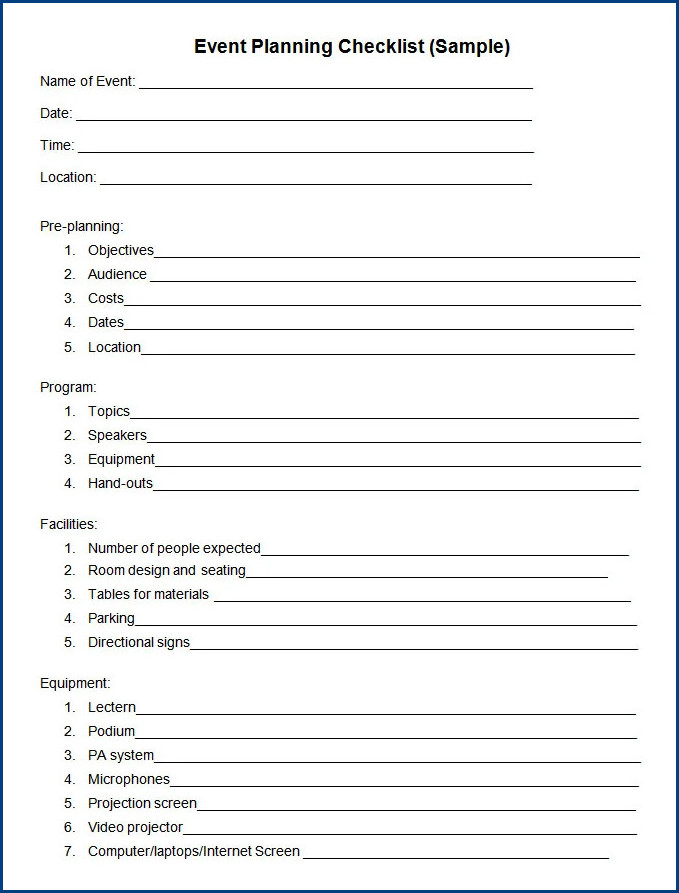
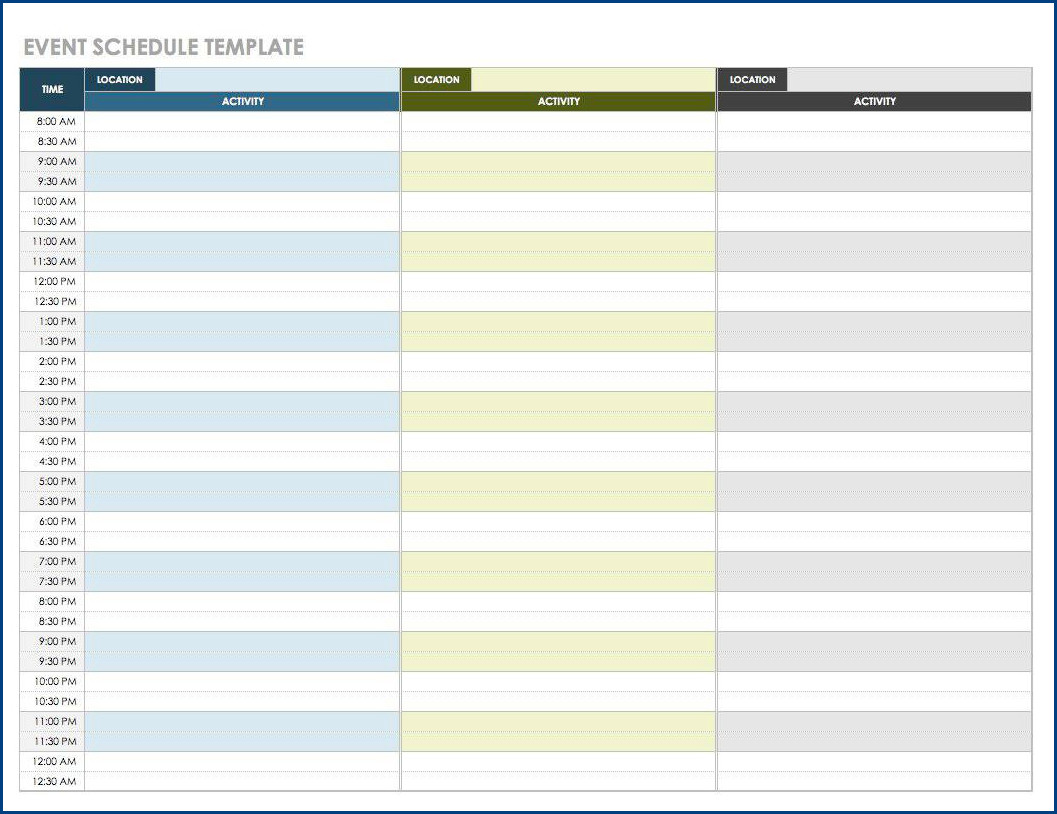
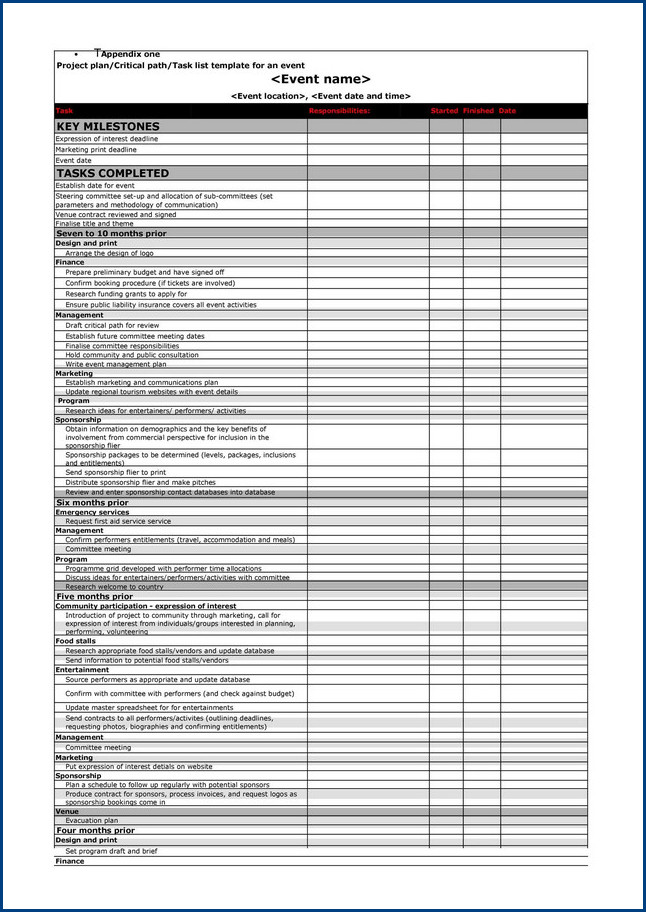
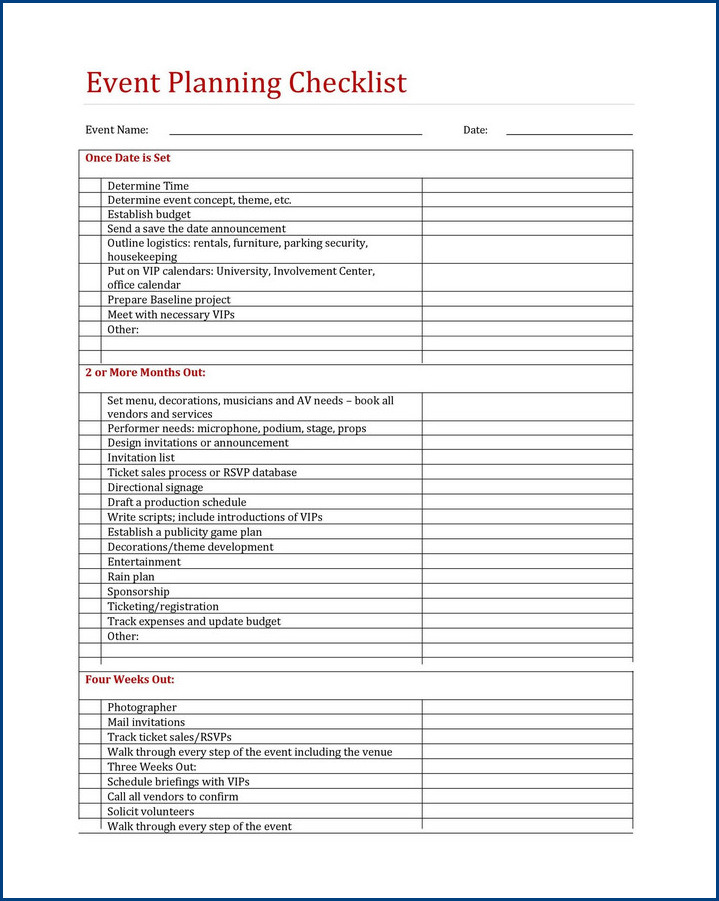
Why is an event planning checklist important?
There are several reasons why an event planning checklist is important and beneficial:
- Organization and efficiency: An event planning checklist helps in organizing all the tasks and activities required for a successful event. It provides a clear roadmap of what needs to be done, when it needs to be done, and who is responsible for each task. This ensures that nothing is overlooked or forgotten, and that all necessary preparations are completed in a timely manner.
- Time management: With a checklist, event planners can effectively manage their time and allocate it to different tasks. By breaking down the event planning process into smaller, manageable tasks, they can prioritize and schedule activities accordingly. This helps in avoiding last-minute rushes and ensures that everything is completed within the given timeframe.
- Resource allocation: An event planning checklist allows planners to allocate the necessary resources, such as budget, manpower, and materials, to each task. It helps in estimating the requirements for each activity and ensures that the available resources are utilized efficiently. This prevents overspending and ensures that the event stays within the allocated budget.
- Reduced stress: Planning an event can be overwhelming, but a checklist helps in reducing stress by providing a structured approach. It ensures that all tasks are accounted for and eliminates the need to constantly remember or worry about what needs to be done.
- Better communication: A checklist serves as a communication tool among event planners, organizers, and stakeholders. It allows everyone involved to be on the same page and have a clear understanding of the progress and status of each task.
- Improved accountability: With a checklist, responsibilities, and deadlines are clearly defined. This promotes accountability among team members and ensures that everyone is aware of their role in the event planning process.
- Enhanced quality: An event planning checklist helps in maintaining quality standards by ensuring that all necessary tasks and requirements are met. It allows for thorough planning and execution, resulting in a well-organized and successful event.
How to Create an Event Planning To-Do List
Here are some steps to help you create an effective event-planning to-do list:
- Start Early: Begin by setting a realistic timeline for your event and determine the specific tasks that need to be completed at each stage. This will help you stay on track and avoid any last-minute rush.
- Define Your Goals: Clearly define the objectives and goals of your event. Are you looking to raise funds, promote a product, or celebrate a special occasion? Identifying your goals will help you plan the event accordingly and ensure that all aspects align with your objectives.
- Create a Budget: Determine your budget early on and allocate funds to different aspects of the event, such as venue, catering, entertainment, and marketing. Be sure to track your expenses throughout the planning process to avoid overspending.
- Choose a Date and Venue: Select a suitable date and venue for your event. Consider factors such as availability, capacity, location, and ambiance. Book the venue well in advance to secure your desired date and negotiate any necessary contracts.
- Compile a Guest List: Determine the number of guests you expect to attend and create a guest list. This will help you plan for seating arrangements, catering, and invitations.
Creating an event planning to-do list is crucial for staying organized and ensuring that all necessary tasks are completed. By starting early, defining your goals, creating a budget, choosing a date and venue, and compiling a guest list, you can lay a solid foundation for a successful event.
Event Planning To-do List Template | Word – Download
Event Planning To-do List Template | PDF – Download
